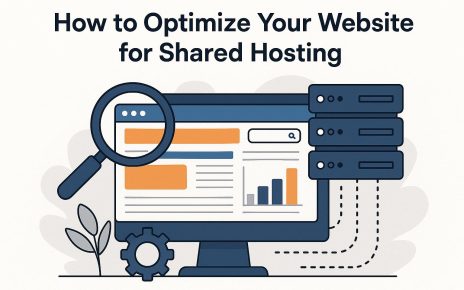Understanding Your Requirements
Before choosing the ideal hosting plan for your WordPress site, it is critical to thoroughly comprehend your specific requirements. This understanding forms the foundation of a successful website strategy. Analyze factors that pertain to the nature of your intended site. Are you anticipating heavy traffic, and how do you plan to handle peak periods? How many websites are you planning to host simultaneously? Additionally, you’ll need to consider any special software needs or integrations that may be necessary. For instance, if you’re expecting a high volume of traffic, then a plan with scalable resources becomes not just advantageous but essential. Consequently, by assessing these requirements carefully, you’ll be able to select a hosting service that aligns perfectly with your objectives.
Types of Hosting Options
When navigating the landscape of hosting services available for WordPress sites, it’s crucial to recognize the numerous options available, each accompanied by its distinct advantages and disadvantages. Below, we delve into the primary hosting types you might consider.
Shared Hosting
Many businesses and bloggers select shared hosting for its cost-effectiveness. This economical choice serves as an ideal entry point, particularly for beginners launching their first website. Shared hosting effectively divides a single server’s resources among multiple users, which significantly reduces costs for each. While this shared approach can be advantageous in terms of affordability, it may lead to some compromises in performance. Notably, the performance of your site might be affected if one of the other websites hosted on the same server experiences high traffic, potentially leading to slower load times and reduced availability.
VPS Hosting
For those who seek a balance between cost and enhanced performance, Virtual Private Server (VPS) hosting presents a viable solution. VPS hosting involves fewer users sharing a given server, which means more allocated resources and enhanced control over your hosting environment. Although VPS hosting is more expensive than shared hosting, it offers a significant performance boost. The greater autonomy and dedicated resources provided by VPS hosting make it an attractive option for growing websites that require better reliability and speed than can be offered by shared hosting solutions.
Dedicated Hosting
In scenarios where ultimate performance and maximum security are of paramount importance, dedicated hosting emerges as a compelling option. Here, you lease an entire server that is exclusively dedicated to your site, eliminating any competition for resources. This hosting type is especially beneficial for large enterprises or highly-trafficked websites that demand top-tier performance and security. Nevertheless, dedicated hosting generally involves higher costs and may require more complex management, potentially necessitating a team with technical expertise to oversee server configurations and maintenance.
Managed WordPress Hosting
For website owners who prefer concentrating on content creation rather than on technical management, managed WordPress hosting is an optimal choice. This service simplifies site management by handling most of the technical aspects, encompassing regular updates, security measures, and performance enhancements. Although this may be a pricier option compared to traditional hosting services, the convenience and peace of mind it offers can be invaluable, allowing bloggers and businesses to channel their focus towards creating engaging content and developing their brand presence.
Essential Features to Consider
An efficient hosting plan is characterized by features that guarantee smooth performance and easy management of your WordPress site. Being meticulous about the features offered can help avoid potential pitfalls and enhance user experience significantly.
Uptime Guarantee
A vital element of reliable hosting services is their uptime guarantee, typically advertised as being above 99.9%. This percentage indicates the time your site should be available and accessible to users. Downtimes can adversely affect credibility and user engagement, making uptime guarantees a non-negotiable feature in choosing a hosting service.
Customer Support
The quality of customer support provided by your hosting provider can make a significant difference in resolving issues efficiently. Problems can arise at any time, making robust, accessible customer support invaluable. Opt for a provider that offers 24/7 support through various channels such as live chat, email, or phone. The knowledgeability and responsiveness of the support team can prevent issues from escalating into costly downtimes.
Scalability
It’s important to plan for future growth when selecting a hosting provider. A hosting plan that allows seamless scale-up of resources accommodates audience expansion and ensures your website continues to perform optimally as traffic increases. Whether it’s upgrading your bandwidth or getting additional server resources, scalability options reflect future-proof planning.
Security Features
Strong security measures should be part and parcel of any hosting plan. Look for features such as Secure Sockets Layer (SSL) certificates and regular backups, which add layers of protection for both site and user data. The presence of robust security features minimizes vulnerabilities to hacking, malware, and data breaches.
Backup Services
The frequent backup of your site’s content protects against data loss. In the event of an unexpected event or failure, having a dependable, easy-to-use backup solution allows for rapid restoration, minimizing downtime and data loss.
Server Location
The geographical location of your server affects the load time of your website for users. Ideally, your server should be located close to your primary audience to reduce latency, thereby enhancing user experience through faster data delivery.
Pricing Considerations
While pricing should not be the sole determining factor in selecting a hosting plan, it remains an important aspect to consider. Different plans have varied pricing structures, and it’s vital to compare these plans while evaluating how well they align with your budget and feature requirements. Be cautious of seemingly low-cost plans that might entail hidden costs as your site scales, as unexpected expenses can disrupt financial planning.
Conclusion
In sum, choosing the right hosting plan for your WordPress site requires a careful balancing act between understanding your specific needs, anticipating potential growth, and evaluating the hosting options available. Your choice should prioritize essential features and be backed by a reliable service provider. With the right hosting plan, you bolster your website’s chances for success and create a framework for sustainable growth. For further insights into recommended hosting providers, consider visiting the official WordPress hosting page for additional guidance.




